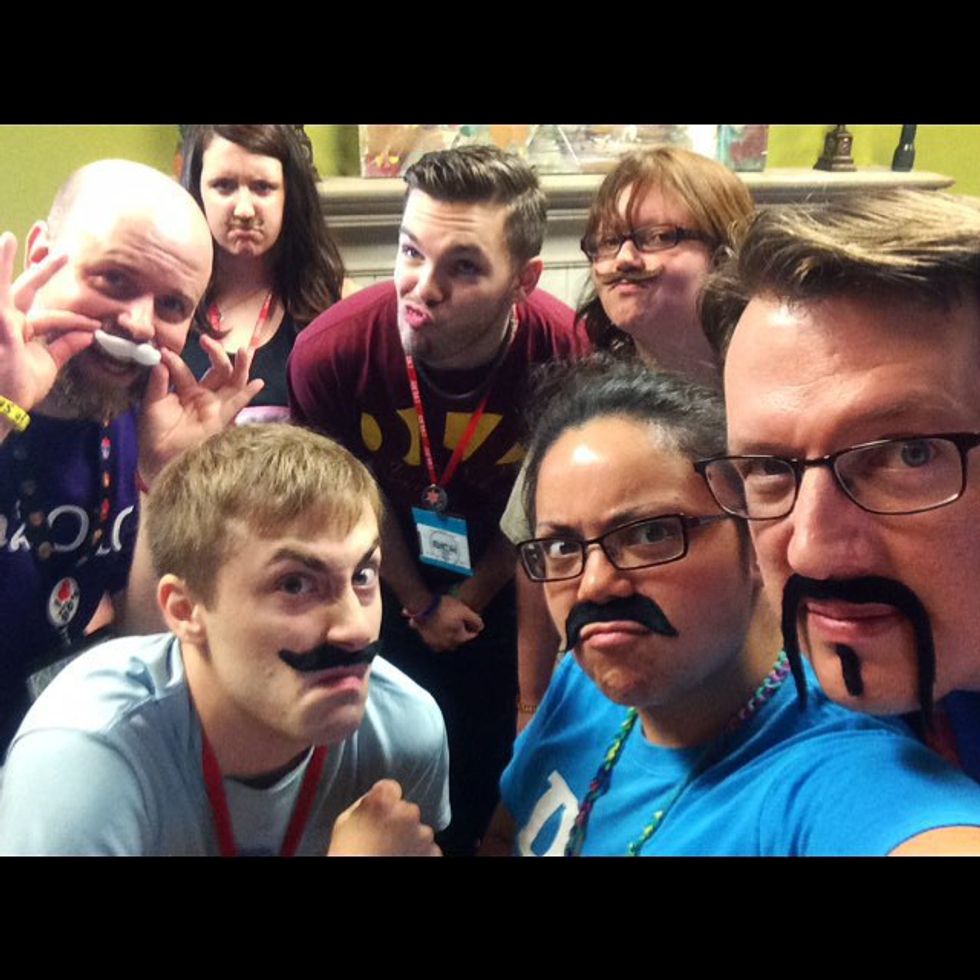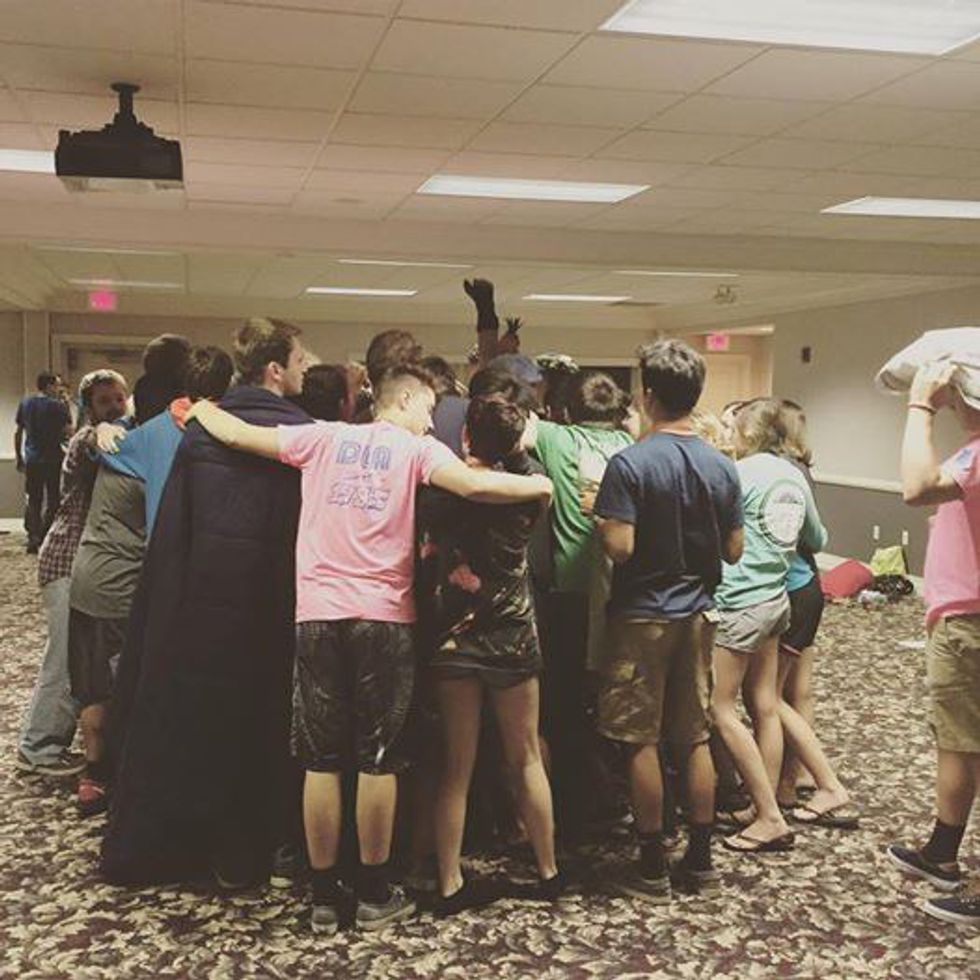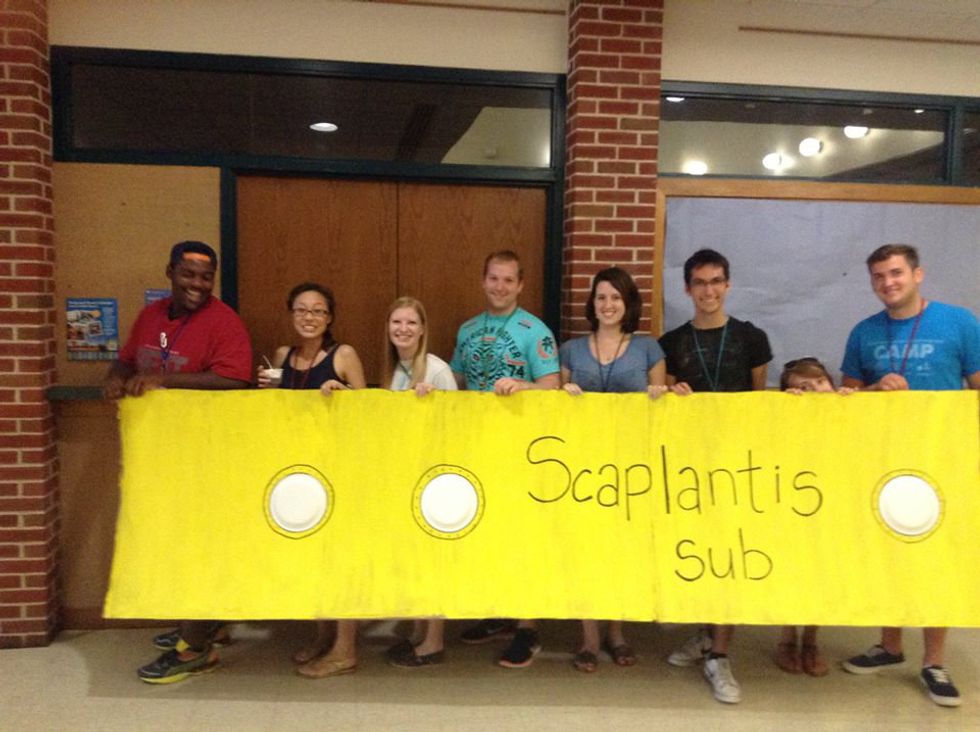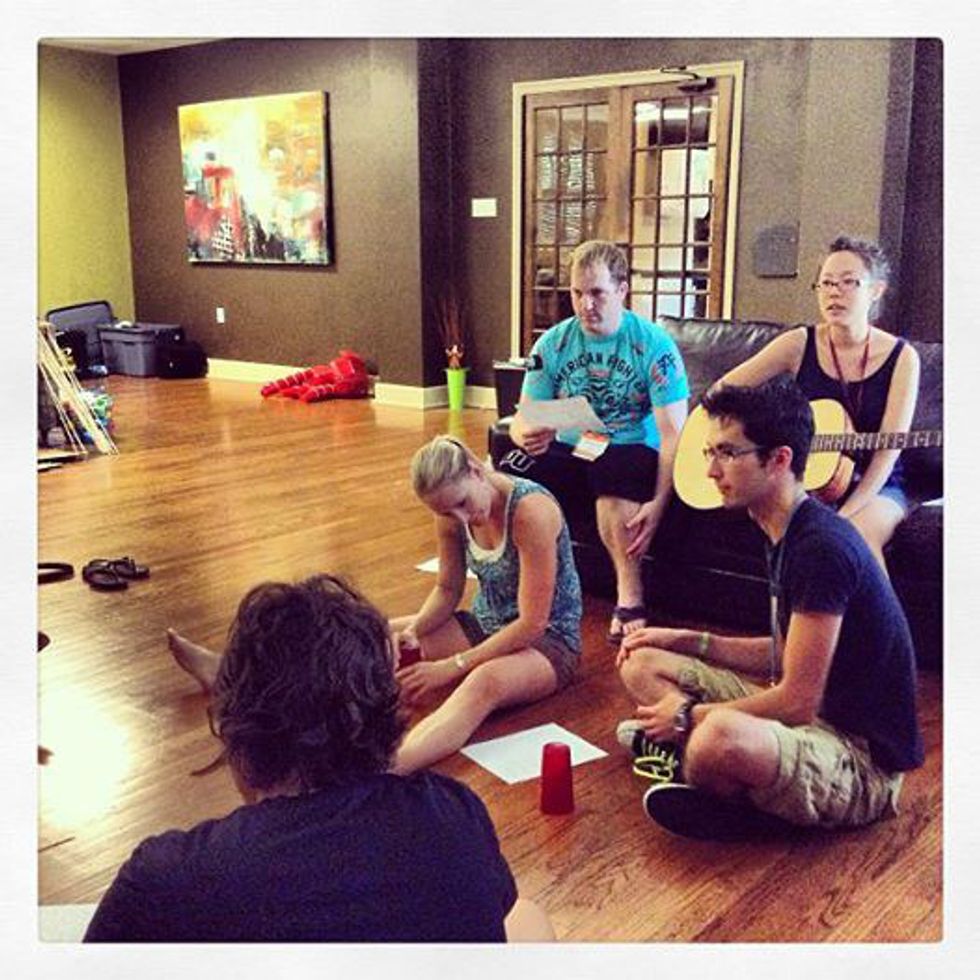I’ve attended and worked at a variety summer camps for nearly a decade. When I counted it up last week I realized I know have 5 different camps under my belt and I’ll add a 6th this summer with a position with Duke’s TIP program. I love being at summer camps. They have an atmosphere all there own. It’s a weird fun fact that people don’t seem to always understand. But camps with kids of any age is a total blast and one of the best summer jobs a high school or college-age person can have.
Recommended for you
- Camp will build teamwork skills like no other
Camp counselors cannot be lone wolves. It’s in the nature of the job. Teamwork is everything when you’re working at a camp, both because of your position but also because you’re often trying to build teams with your campers. Teamwork is essential to nearly every field, so these are skills you can reference later in life. As a counselor you get the benefit of establishing your own team with your co-counselors all while observing and moderating your team of kids.
2. You learn how to be a role model
As a counselor you’re expected to supervise and encourage the kids you oversee. But another huge part of the job is acting as a role model. This is particularly important when you’re working with high school and middle school students. Adolescence is a rough time — between puberty, general awkwardness, first relationships, and the general stress of growing up, they are going through a lot. Showing your campers that they can get through all of that to be successful young adults is essential.
I don’t sugarcoat things. I tell them that college is hard, that sometimes they’re going to hate it and lose confidence in themselves. Going to college is difficult and scary. But it is also wonderful and adventurous and a time of self-discovery. Being a role model means being upfront, not hiding the truth but illuminating it in all of its complexities.
3. The kids will inspire you as much as you inspire them, if not more.
The majority of camps I worked at were with gifted students. These kids were not only incredibly intelligent but they were often very creative. It was too easy to be impressed by the things that they made, the ideas they shared. There are gifted artists, writers, musicians, comedians, those that are exceptionally skilled at science and math, etc. They did weird and funny things like write out algebra formulas on the sidewalk during our Art Night. They’re unbelievably nerdy and unbearably loveable.
.
A lot of them come from small rural schools and they have a difficulty finding peers that share their interests. At camp they blossom with new friends and new interests. I cannot describe how much it affects a person to watch a shy student, initially reluctant to join the group, bloom in leadership, make new friends, and truly be themselves. It serves as a reminder to me (someone who is very anxious in new situations around new people) that oftentimes if you simply commit to the situation it often turns out alright.
4. It’s a fun yet challenging summer gig
I won’t lie — there were moments I cried, some days when I felt off my game and needed extra coffee and chocolate to get me through. At times I did not get along with my coworkers. Once or twice I called my parents crying. Occasionally I used my off hours to simply get away and experience a world outside of arts and crafts and name tags.
You run on little sleep and a lot of stress and pressure. But that is nothing in comparison to the sheer pleasure of working with kids, knowing the you’re positively impacting their lives.
All of that stress and weariness is worth something. Because I know now that I can function fairly well on a week with only 4-5 hours of sleep a night and still be patient enough to handle middle schoolers. I’ve learned a lot about myself at these camps, how I function under stress, how to provide self-care, and how to best manage my limited amount of free time. Overall, there is a lot to be gained from the stress and strain.
5. You will make life-long friends
Three of the six weddings I attended last year were of some of my fellow counselors. I will undoubtedly invite them to my wedding. I regularly text and snapchat many of my co-counselors. We keep a group text running year-round. I often pick up my phone after class to find texts seventy or more texts discussing logistics of camp. These are people I text when something very good or very bad happens in my life. We share in each other's struggles and successes long after our session is over because we simply care about each other so much. These are people I hope to keep in my life forever. Two weeks of shared sleep deprivation binds people in a remarkable way.
6. New Experiences
One of the best parts is getting a chance to learn new things. It was at camp that I learned how to play the cup song from Pitch Perfect. I took my first Meyers-Briggs at camp. I attended a Leadership Ranch and learned new methods of team building. Camp was the first time I went black-light bowling, and my group of kids held a contest to see who could do the flashiest roll. This last summer we took the kids on a field trip to a local art museum and we experienced exploring American art together. My campers have taught me new games, shown me new music, recommended some amazing books.
There are summer camps in every state, so finding an opportunity near you won’t be difficult. You can also find camps covering every kind of topic. In the last 4 years alone I’ve worked at art camps, conservation camps, gifted education camps, and this summer I’ll be working in the area of archaeology. One of my friends has spent several years working with special needs kids at Camp Barnabas in southern Missouri. I know many people that have spend their summers in Arkansa at Camp War Eagle, which is for underprivileged kids. Explore your options and figure out what might be the best place for you and your unique talents.
7. There is no summer job like it.
Camps can last anywhere from a few days to two months. A lot of them pay fairly well, and if they don’t the volunteer experience looks great on resumes. This is a great option if you’re doing a study abroad in the summer, class, or a short-term internship and you cannot fit a part or full-time job in the mix. Most of the camps I have worked at last between one and two weeks, offer room and board, and references afterwards. I’ve attended plenty that offer half-days, leaving most of the afternoons free for relaxing (balancing a part time job or online class). If you only have a few weeks out of the summer to work, what’s better than that?

It’s good to note that “camp” doesn’t always mean roughing it in a cabin with plywood bunk beds. Today a lot of camps are housed in fully air conditioned universities or public schools. While traditional camps still exist, if you are not the type to roast s’more around a bonfire, there are other options out there for you.
8. It might help you find a direction
It did not take me long to realize that I am not cut out to be a teacher. I love my kiddos, but when working with them I do have to pull out a patience that I don’t normally apply to my day-to-day life. So while I like kids I’d rather just have my own then spend the rest of my working life corralling other people’s children.
But that was me. So many of my coworkers really found something when working with these kids. Ultimately, a good number of them changed their majors or went towards another career following camp. If you’re thinking about being a teacher or otherwise working with young ones, a camp might be a great way to test the waters before you get too deep into your program.
Being a camp counselor can be a growing experience. I can say without a doubt it’s been one of the best experiences of my life and I’m sure many of my friends would say the same.
Working at a summer camp isn’t for everyone. If you’re not really a fan of kids, have difficulty working in a team, or lack patience, you should maybe go towards a more traditional summer job or internship. If it does sounds appealing, you should start applying right now because a lot of places are recruiting.





























